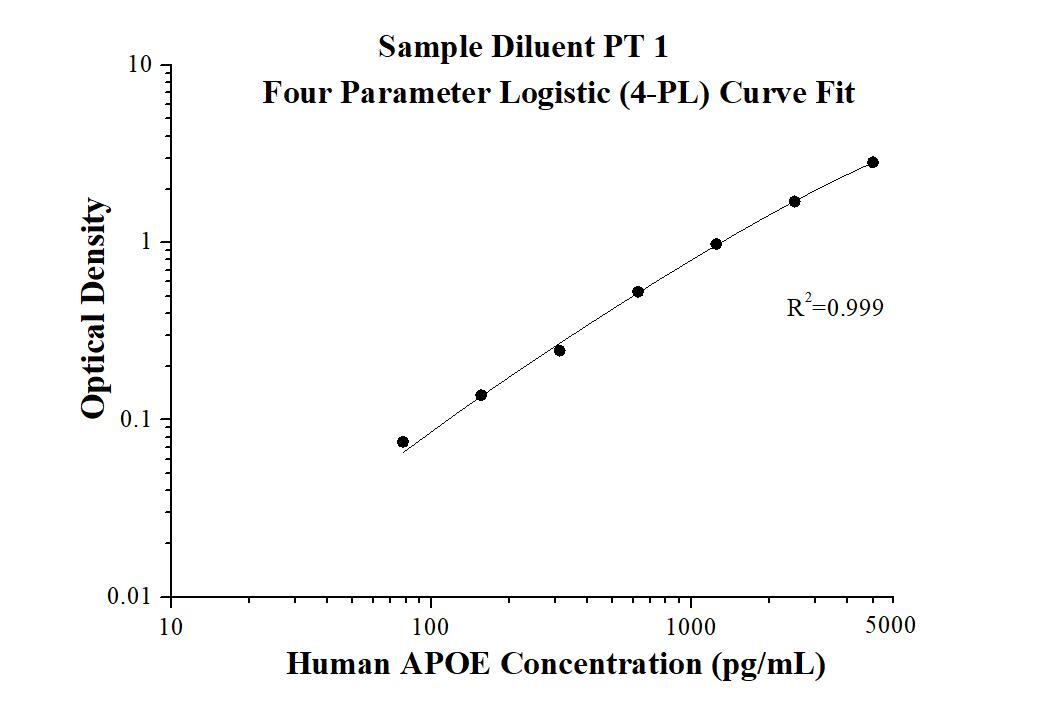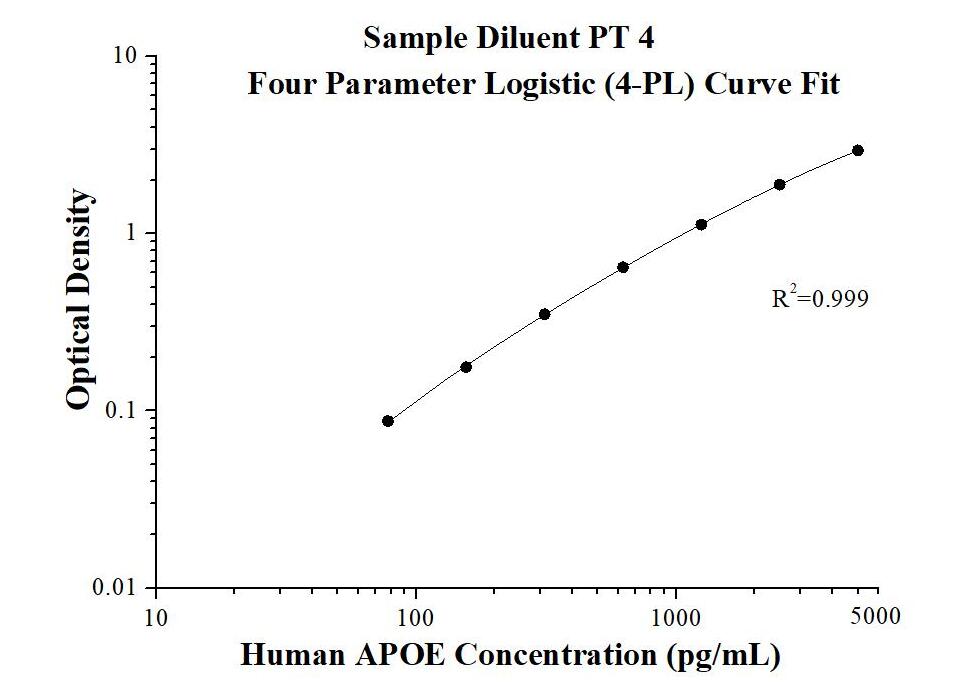Human APOE ELISA Kit
Cat no : KE00156
Synonyms
Apo E, Apo-E, apoe4, apolipoprotein E, ApolipoproteinE
Validation Data Gallery
Product Information
KE00156 is a solid phase sandwich Enzyme Linked-Immuno-Sorbent Assay (Sandwich ELISA). The APOE ELISA kit is to be used to detect and quantify protein levels of endogenous APOE. The assay recognizes human APOE. An antibody specific for APOE has been pre-coated onto the microwells. The APOE protein in samples is captured by the coated antibody after incubation. Following extensive washing, another antibody of biotinylated specific for APOE is added to detect the captured APOE protein. For signal development, Streptavidin-HRP is added, followed by Tetramethyl-benzidine (TMB) reagent. Solution containing sulfuric acid is used to stop color development and the color intensity which is proportional to the quantity of bound protein is measurable at 450 nm with the correction wavelength set at 630 nm.
| Product name | Human APOE ELISA Kit |
| Tests | 1 X 96 well plate |
| Sample type | Human serum, plasma, cell culture supernatant, urine, saliva, cerebrospinal fluid |
| Assay type | Sandwich |
| Sensitivity | 29.4 pg/mL |
| Range | 78.1-5000 pg/mL |
| Reactivity | Human |
| Tested applications | Sandwich ELISA |
| Gene ID (NCBI) | 348 |
Recovery
| Sample Type | Average | Range |
|---|---|---|
| Human serum | 100% | 81%-118% |
| Urine | 113% | 99%-123% |
| Saliva | 105% | 77%-125% |
| Human cerebrospinal fluid | 81% | 73%-96% |
IntraAssay
| Sample | n | mean ( pg/mL) | SD | CV% |
|---|---|---|---|---|
| 1 | 20 | 2,811.2 | 88.6 | 3.2 |
| 2 | 20 | 776.0 | 23.9 | 3.1 |
| 3 | 20 | 291.0 | 7.4 | 2.5 |
InterAssay
| Sample | n | mean ( pg/mL) | SD | CV% |
|---|---|---|---|---|
| 1 | 24 | 2,846.8 | 200.8 | 7.1 |
| 2 | 24 | 729.6 | 22.3 | 3.1 |
| 3 | 24 | 283.9 | 11.1 | 3.9 |
Background Information
APOE (apolipoprotein E) is a plasma protein implicated in lipid metabolism. It is produced predominantly by hepatocytes, macrophages, and neural cells. In the CNS, APOE is the major extracellular lipid carrier and plays a key role in neuronal protection/repair after injury. APOE is polymorphic, with three major alleles: APOE2 (cys112, cys158), APOE3 (cys112, arg158), and APOE4 (arg112, arg158). APOE2 plays a protective role against both Alzheimer's (AD) and heart disease. APOE4 confers a higher risk for atherosclerosis and Alzheimer's disease. Analysis of cerebrospinal fluid (CSF) and plasma APOE protein levels in AD patients had been performed to examine its association with AD pathology. In old age, high plasma APOE levels precede an increase of circulating CRP and strongly associates with cardiovascular mortality.
Properties
| Storage Instructions | All the reagents are stored at 2-8℃ for 6 months or -20℃ for 12 months. Refer to the protocol for further storage instructions. |
| Synonyms | Apo E, Apo-E, apoe4, apolipoprotein E, ApolipoproteinE |
Publications
| Species | Sample Type | Title |
|---|---|---|
Diabetes Metab Syndr Obes Early Gestational Blood Markers to Predict Preeclampsia Complicating Gestational Diabetes Mellitus |


